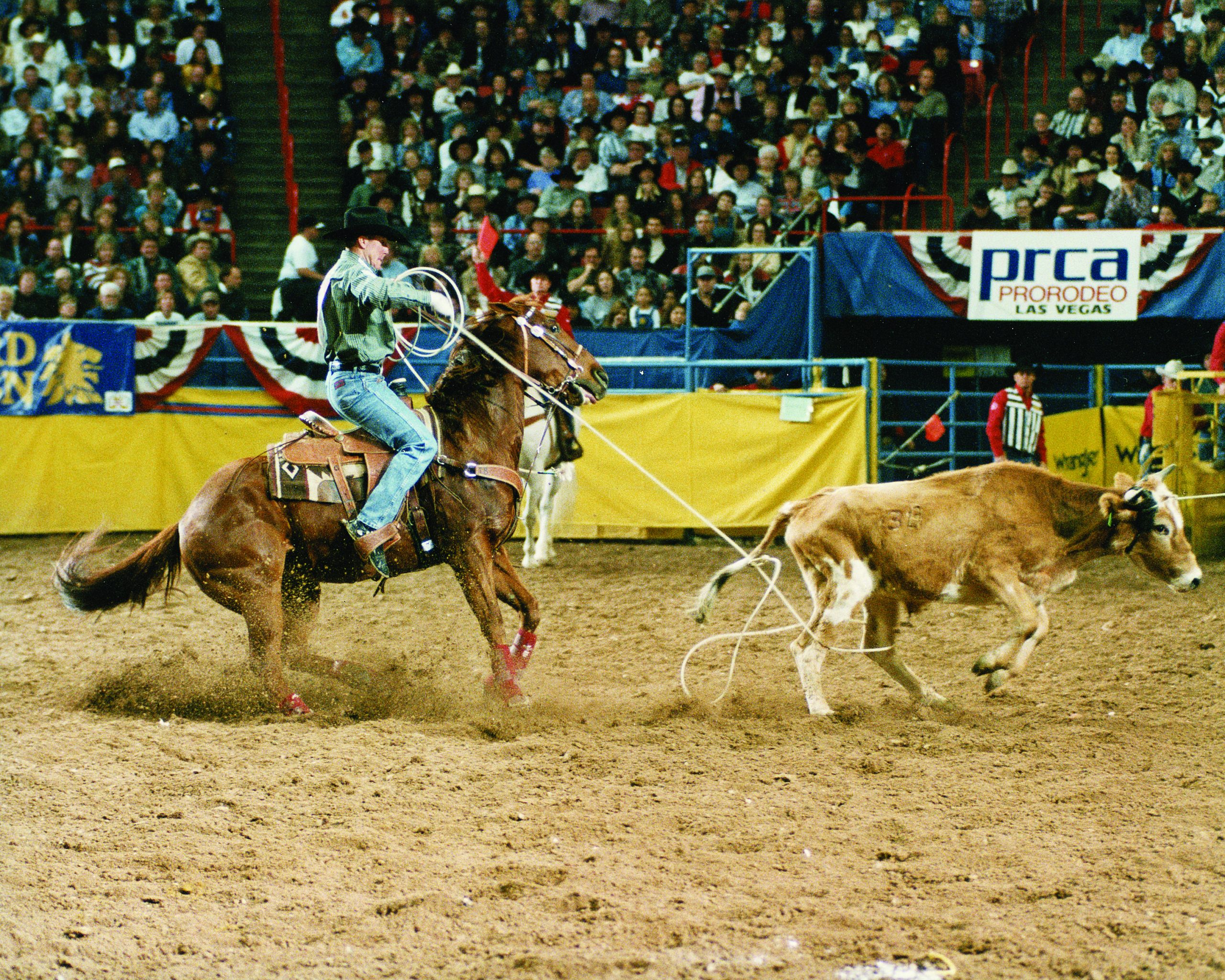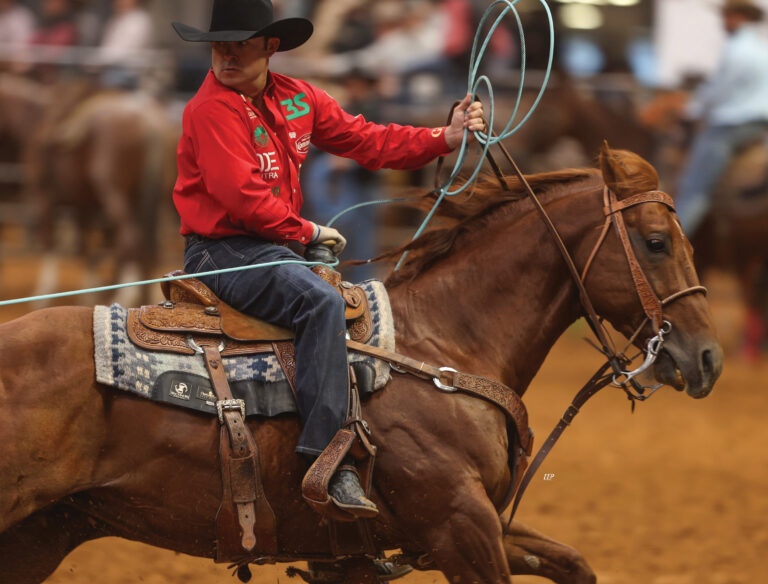Luke Brown
Luke’s a perfect poster boy for this story. He joined the Professional Rodeo Cowboys Association in 1998. But it wasn’t until his 11 season after going pro that his stars aligned and he qualified for his first Finals in 2008. Since Luke got that Top-15 ball rolling, he’s earned 12 straight NFR back numbers.
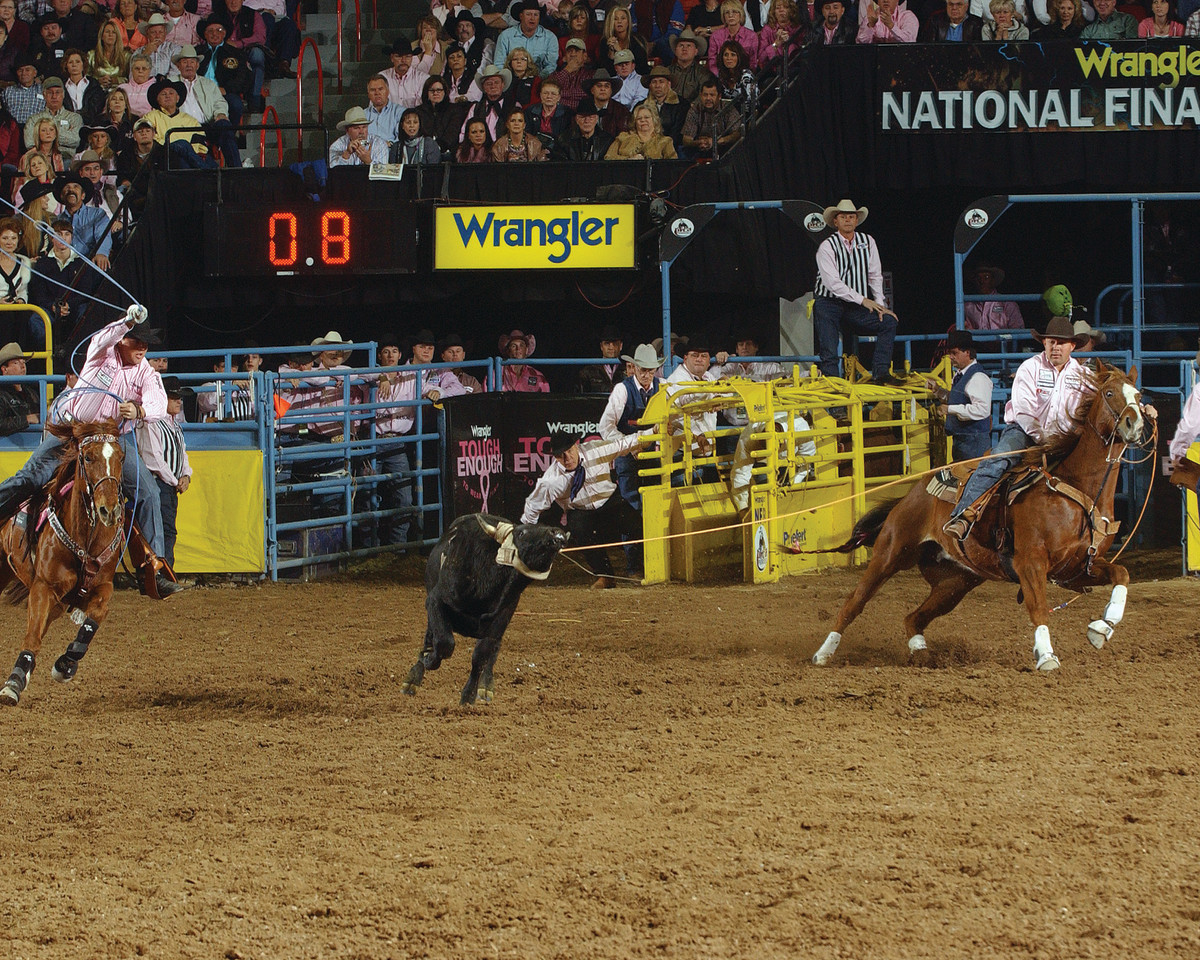
“I don’t know if making your first Finals is actually any tougher than the other ones, just because they’re all hard to make,” said South Carolina native Luke, who’s 45 now. “I think the mental game and the anxiety of it is the hardest thing. It’s really hard for a first timer to make it in the Top 10, because of the stress. I’ve thought I had it made after the Fourth of July, then it gets harder to win at the end of the year. The stress of being on the bubble is tough, and everybody knows how hard it is to make the Finals. It’s easy to start second-guessing yourself.
[READ MORE: Knowing You Belong with Luke Brown]
“Once I made the Finals one time, I realized I made it a lot harder on myself than I should have. The first year I made it, in 2008, I had a good Fourth of July and moved way up in the standings. I had $46,000 won, and it didn’t take but high fifties to make it back then. I felt like I had it made, then I roped terrible that summer after the Fourth. It’s easy to start panicking. It can get to your head a little bit.
“I don’t know that it’s gotten any easier after making it that first time, but I’ve been pretty dedicated and pretty fortunate. I’ve had great partners and great horses. I know now where it’s really important to win, which lets you relax a little. Placing at the bigger rodeos is huge. You can’t let too many of those slip by you.”
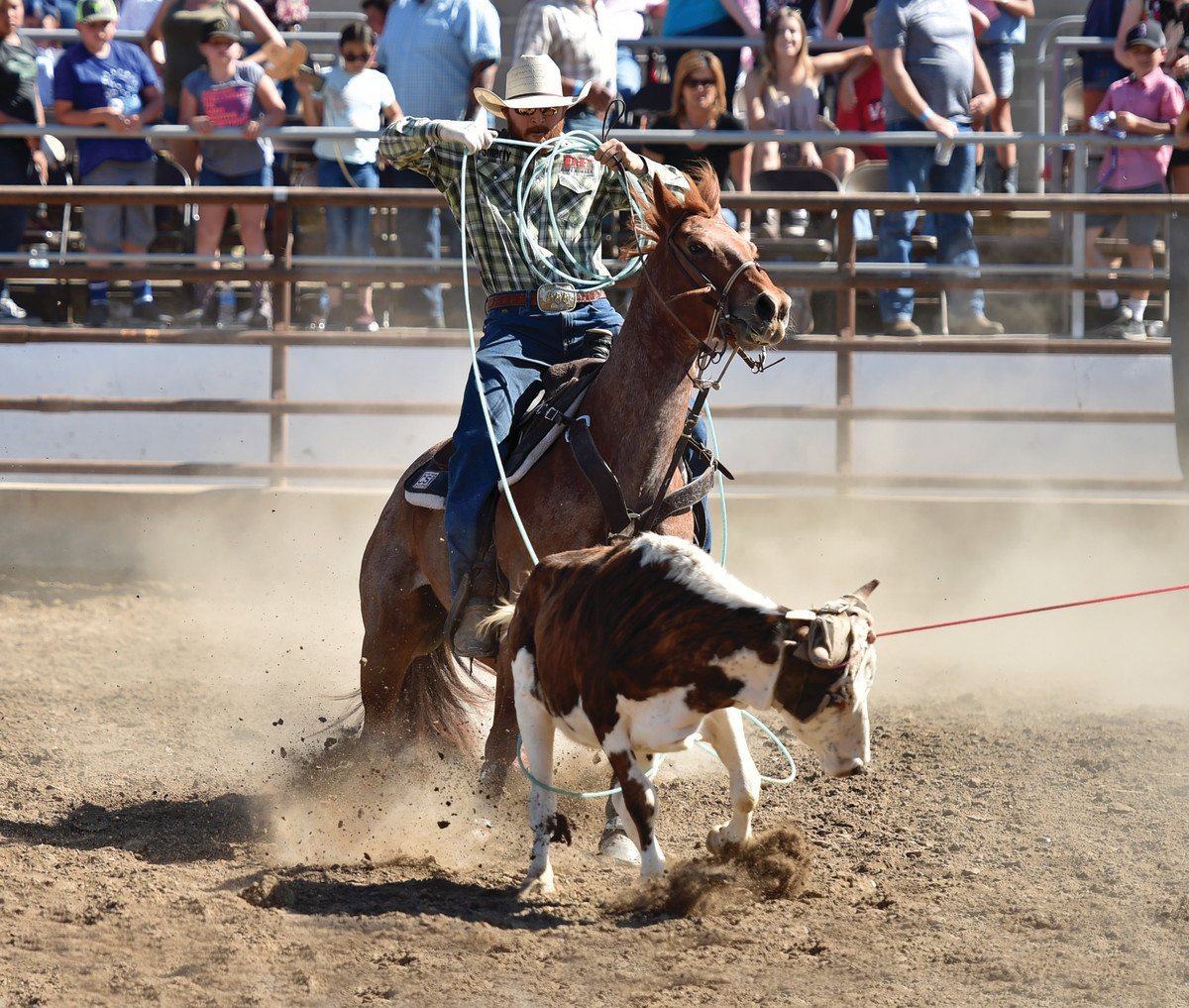
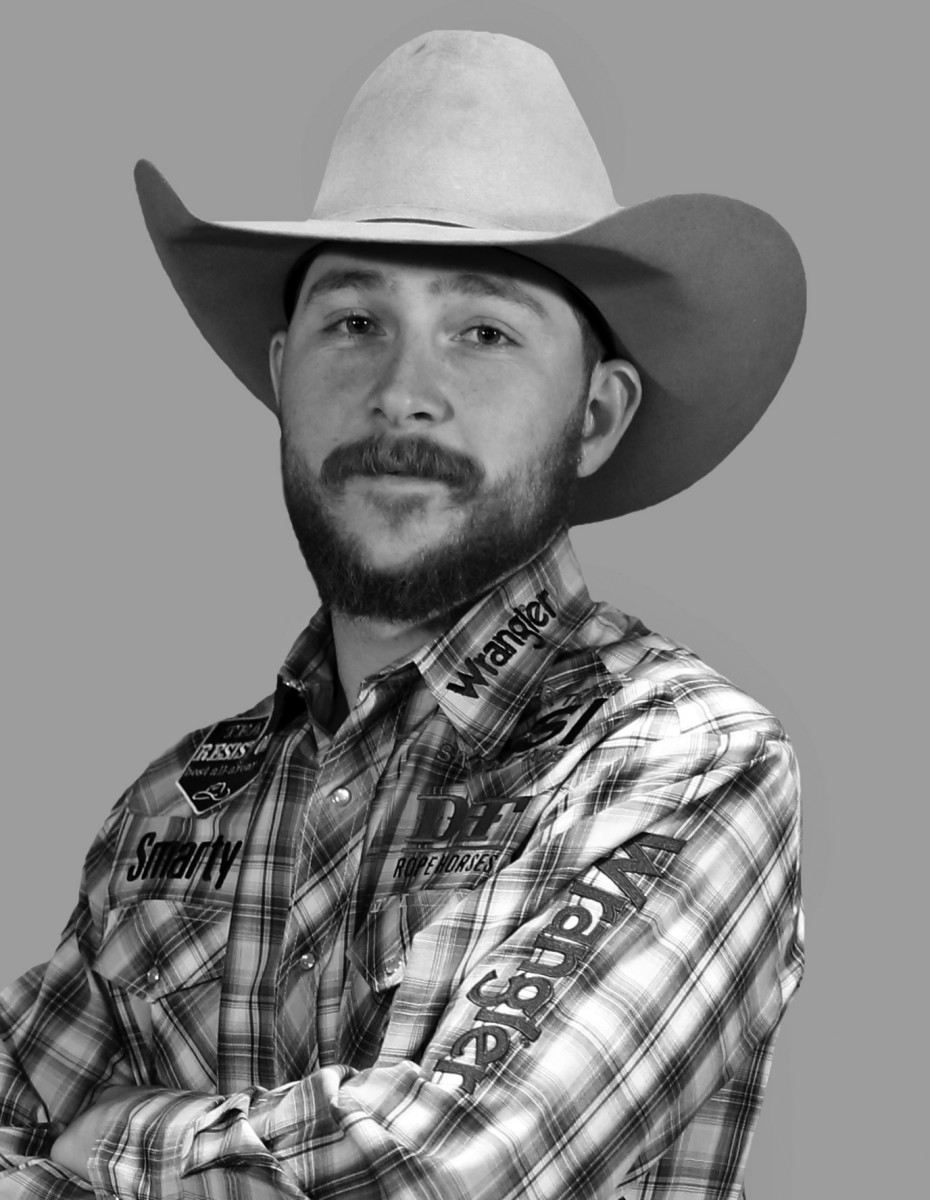
HEELER
Tyler Worley
Hometown: Berryville, Arkansas
Partner: Tate Kirchenschlager
Pre-NFR Earnings: $71,190
Pre-NFR World Standings: 15
Years in PRCA: 5
Luke actually heeled back in the day. And he said he bought his PRCA permit—then his card—with no intention of ever making the NFR.
“I amateur rodeoed, circuit rodeoed and went to the buildings a few times,” he said. “I switched to heading in about 2000. I didn’t go all year until 2006. I went in the summer with Travis Graves, but came home after Cheyenne. In 2007, I roped with York Gill through Cheyenne, then with Al Bach. I roped with Monty Joe Petska in 2008, then headed for Jade Corkill at that first Finals.
“I roped so much my whole life. The two main things that made the difference for me were getting a new horse and setting my mind to making it. Of course I had to do everything better, too. Where I grew up, barriers are a lot shorter and arenas are a lot smaller. When you get outside at the pro rodeos, you have to score better, ride better and your horses run harder, because the steers are stronger. You have to learn to make things happen a little farther out in the arena than we did back home in South Carolina. There were adjustments to make, for sure.”
[LISTEN:The Score: Season 2, Episode 22 with Brenten Hall]
Brown’s best advice for the NFR rookies?
“Honestly, I’d say the biggest thing is not running over yourself,” Luke said. “It is fast there, but the setup is fast, too. I’ve done the best there when I felt like I was smart and sharp and in control more than trying to win day moneys. The faster I try to go, the more mistakes I make. Being myself, not getting nervous and doing my thing ends up way more prosperous for me. If I just let it happen the best I can without trying to do something I’m not sure I can do, that’s when it goes best for me.”
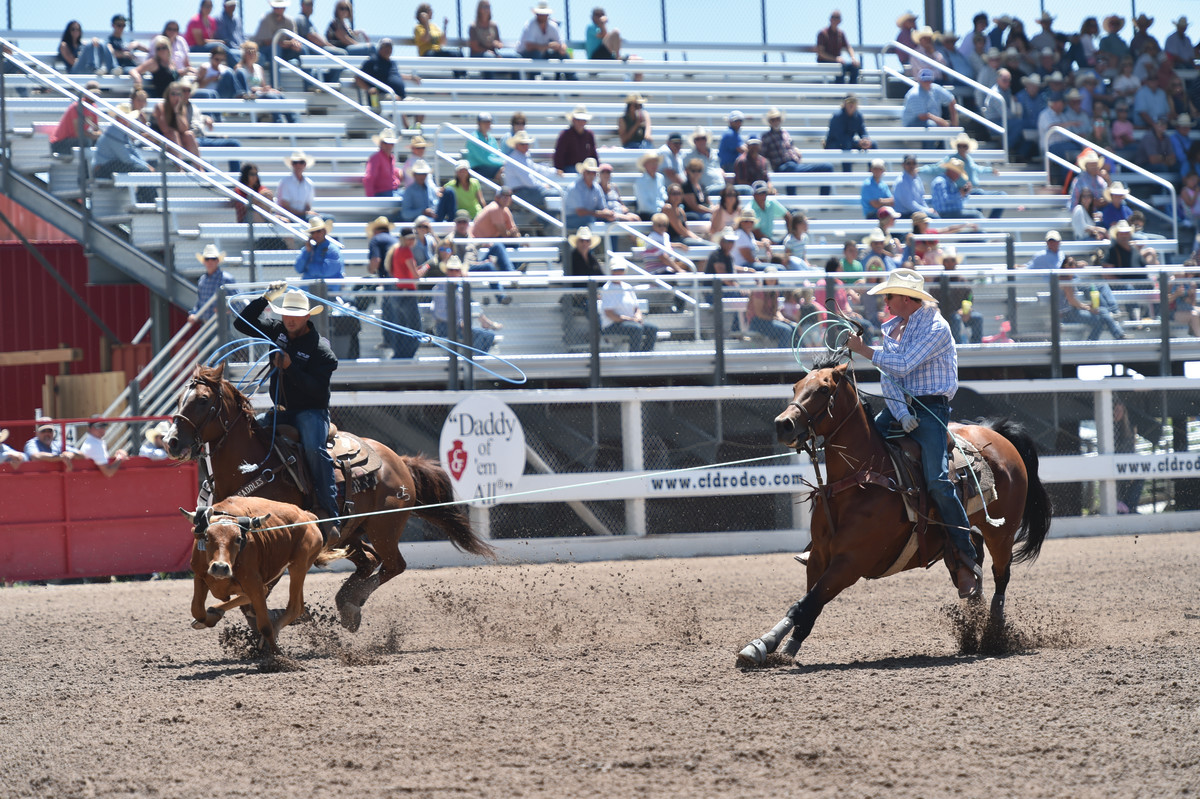
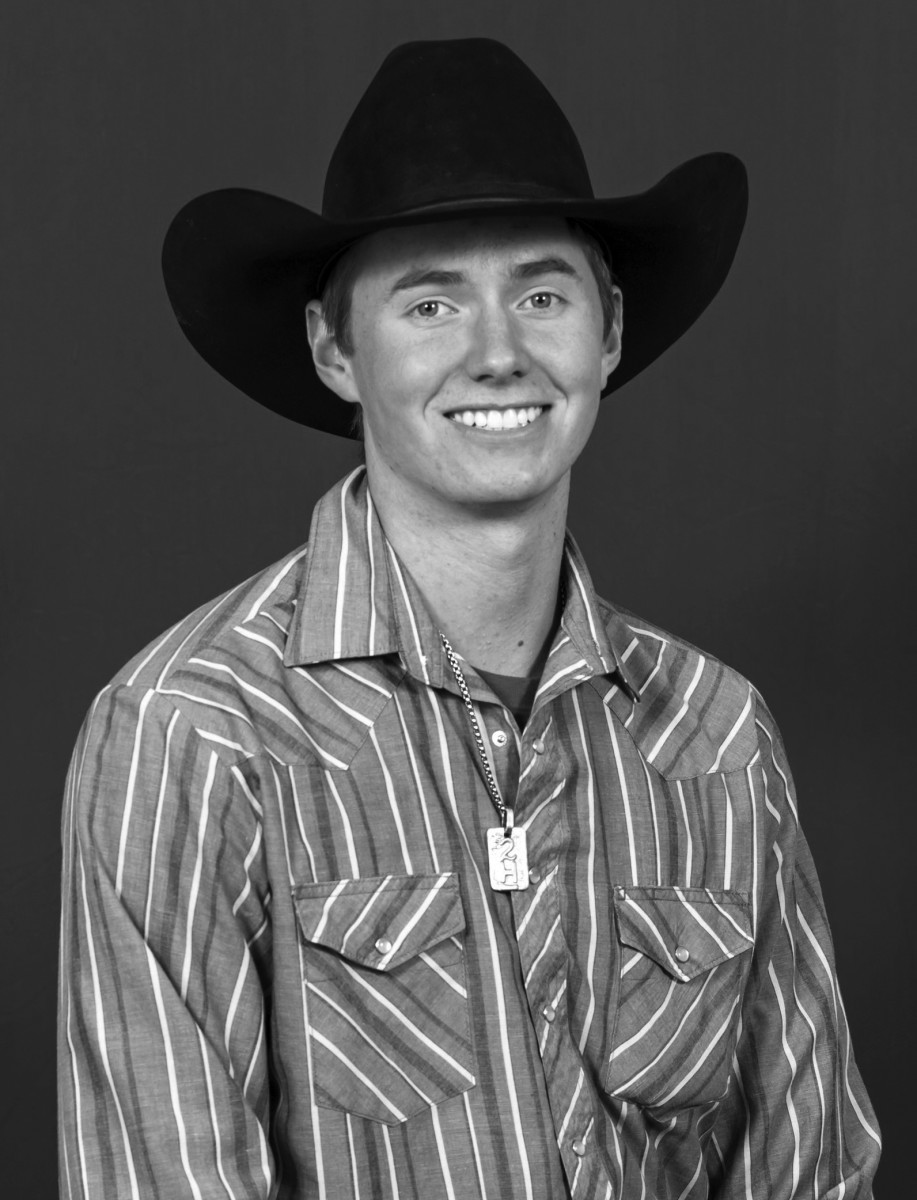
HEADER
Brenten Hall
Hometown: Jay, Oklahoma
Partner: Chase Tryan
Pre-NFR Earnings: $88,926
Pre-NFR World Standings: 9
Years in PRCA: 2
[READ MORE: Pro Rodeo Results Wrap-Up: Hall and Tryan Clinch NFR Spot with Puyallup Win]
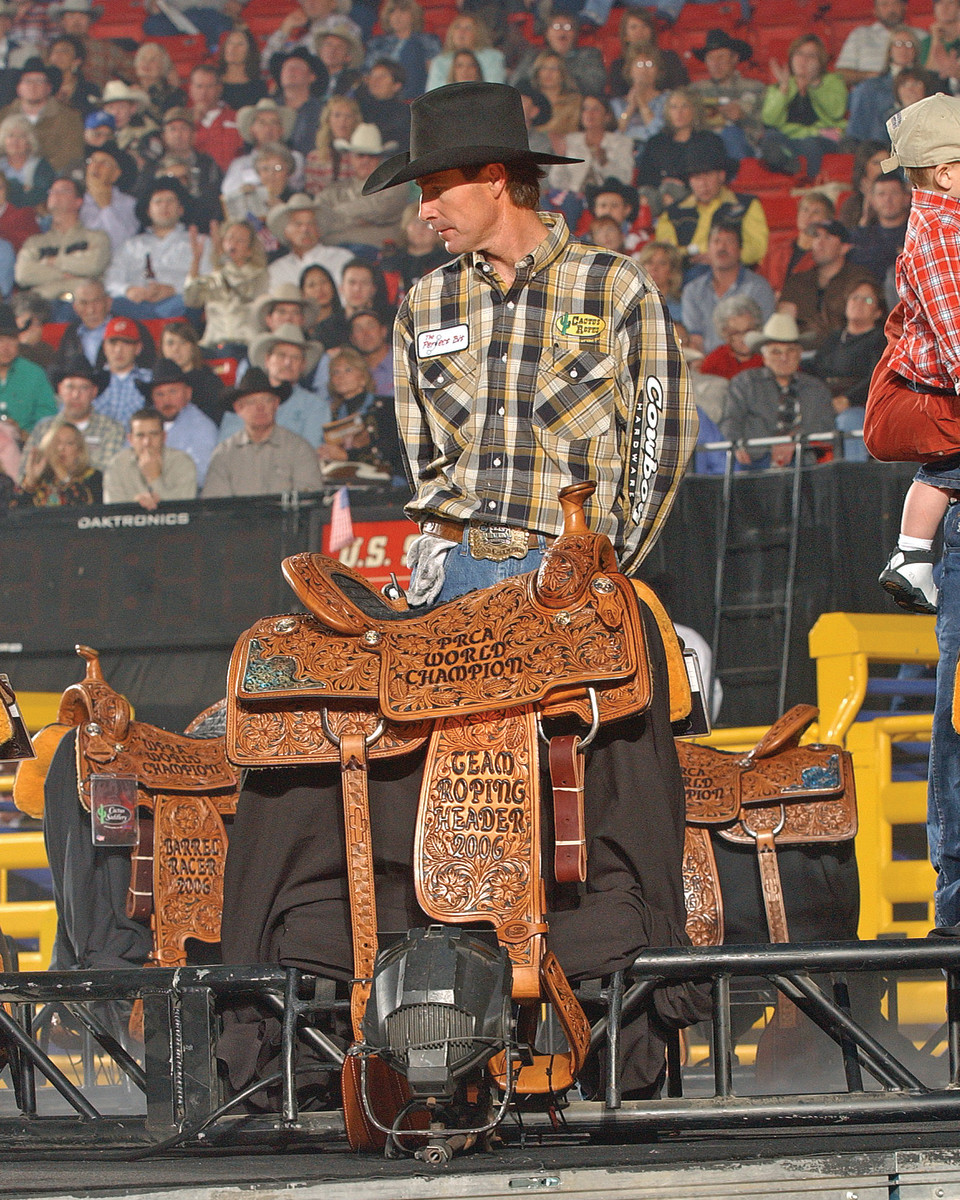
Matt Sherwood
Sherwood’s another shining example of a late bloomer in the team roping arena. His rookie season was 1994, and 12 years later he rode into the Thomas & Mack for the first time—apparently locked and loaded, as he won his first of two gold buckles at that first Finals. At 50, six-year-NFR-veteran Sherwood will this month head for Finals freshman Hunter Koch after last month winning the Canadian team roping title together.
“There are three reasons the first Finals is the hardest one to make,” Sherwood said. “First, you have to believe you can do it. You grow up seeing guys do it year after year, then you’re competing against them. You have to believe you’re one of the best in the world and that you can do it before you can do it. You’ve got to get to the point where you believe your run is good enough. You need to be confident that what you’re doing at the house is good enough to win at the rodeos, then be able to go do it. If it isn’t, you need to practice harder and get better.
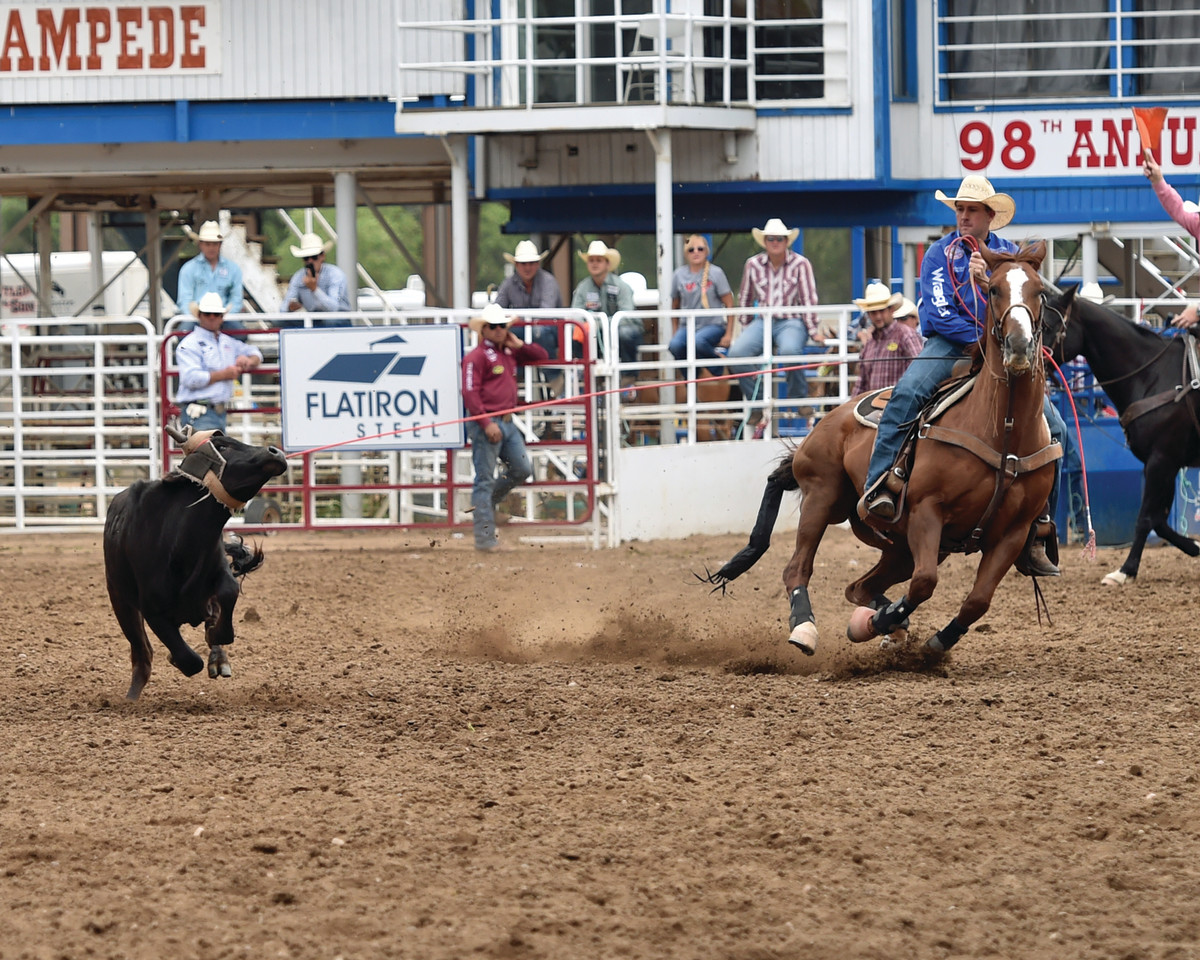
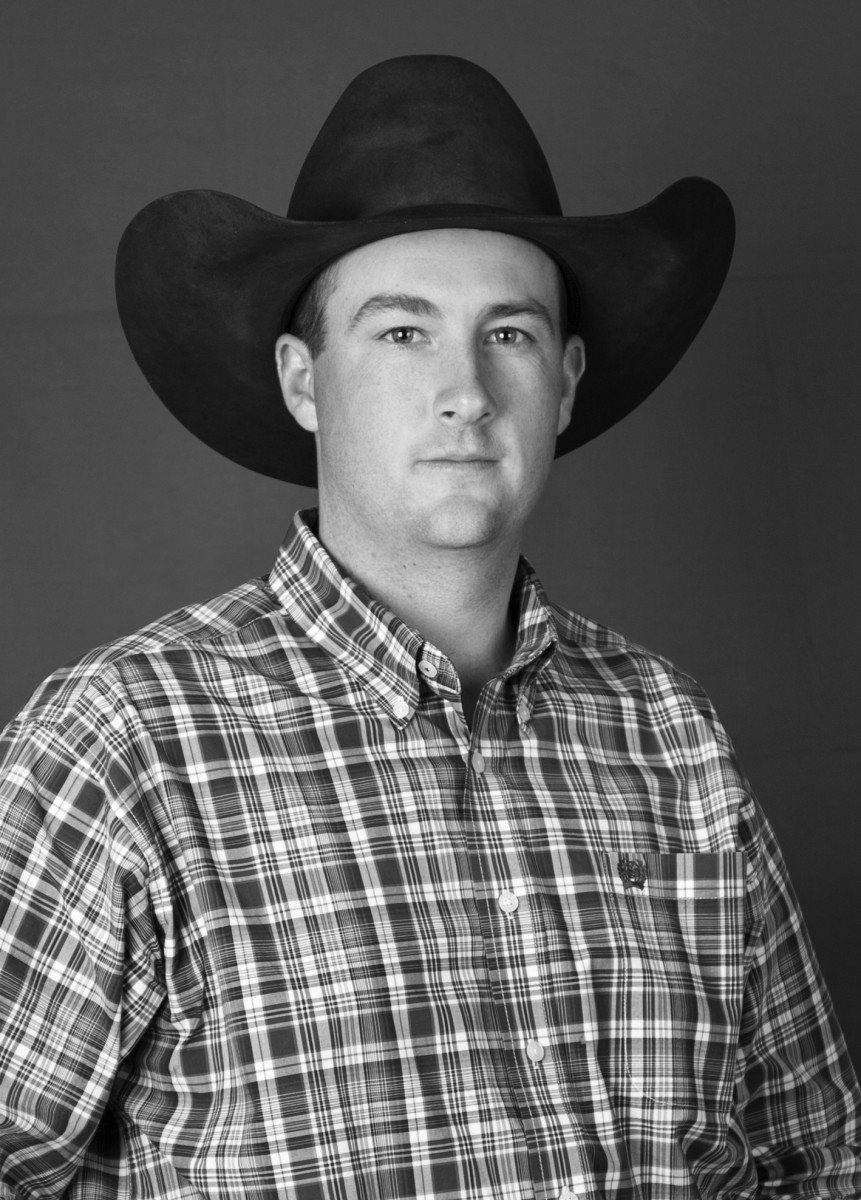
HEADER
Tate Kirchenschlager
Hometown: Yuma, Colorado
Partner: Tyler Worley
Pre-NFR Earnings: $75,737
Pre-NFR World Standings: 12
Years in PRCA: 9
“Second, it’s hard to get a partner that’s good enough to make the NFR until you’ve proven yourself. You have to prove that you can do your job in September, when you need to win. It’s tough to get guys to take a chance on you before you show them what you’re made of.
“Third, it takes a while for a lot of us to learn that if we rope good enough and do our job, we will win. It took me awhile to understand that it really is as simple as ride your horse, rope your steer and let the time dictate itself. When I was first rodeoing, I would beat myself so many times by getting a no time, when a long time would have won something. If your steer runs, you still have to catch him to stop the clock. Win more on the steers you’re supposed to win on, but catch the runners, too.”
Why the big gap between Sherwood’s professional debut and his first trip to Vegas?
“Because rodeo is a huge gamble, and I was not financially set up to take that gamble,” said Matt, who married his bride, Kim, in 1992, then got very busy raising their seven kids with her. “To put my wife and kids in the situation where I was off rodeoing and we weren’t sure we’d have anything to eat wasn’t happening. I was working to get us into a better financial situation, and I just wasn’t quite confident enough in my roping to take that risk.
[LISTEN: The Short Score: August 6 with Matt Sherwood and Hunter Koch]
“To me, this is not a sport where you’re going to retire at a certain age and be set financially. I’ve only seen about five guys do that, and they did it by making a name for themselves, then making money through schools and other avenues related to that success in the arena. I’m 50 years old, and I’ve made more money outside of rodeo than inside.
“I’ve had a moderately successful career, with two world championships, but I’ve missed the Finals quite a few times, too. If I’d felt like I roped good enough in 1994 to make the NFR, I might have done it differently. As you get to where you rope better and better, it makes more sense to drive a long way to rope one steer.”
What will Sherwood be telling Koch and the rest of the NFR rookies as they ride into the Thomas & Mack for the first time?
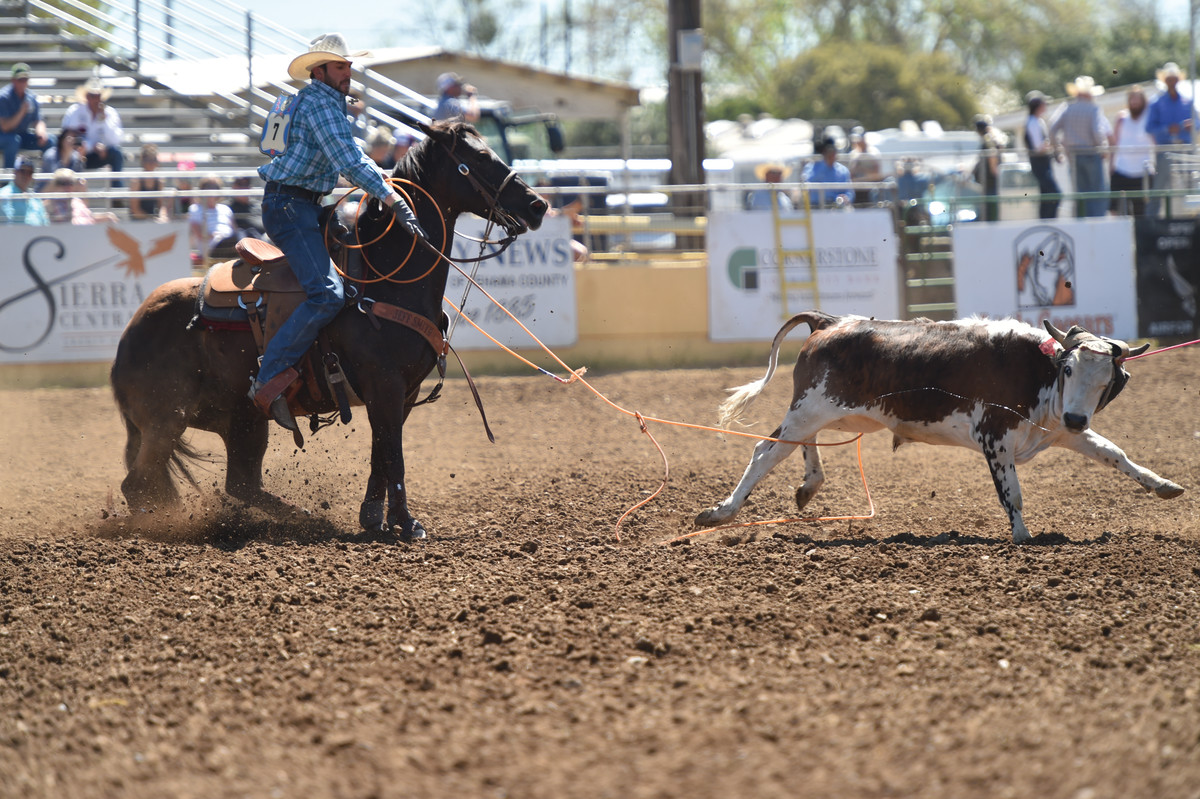
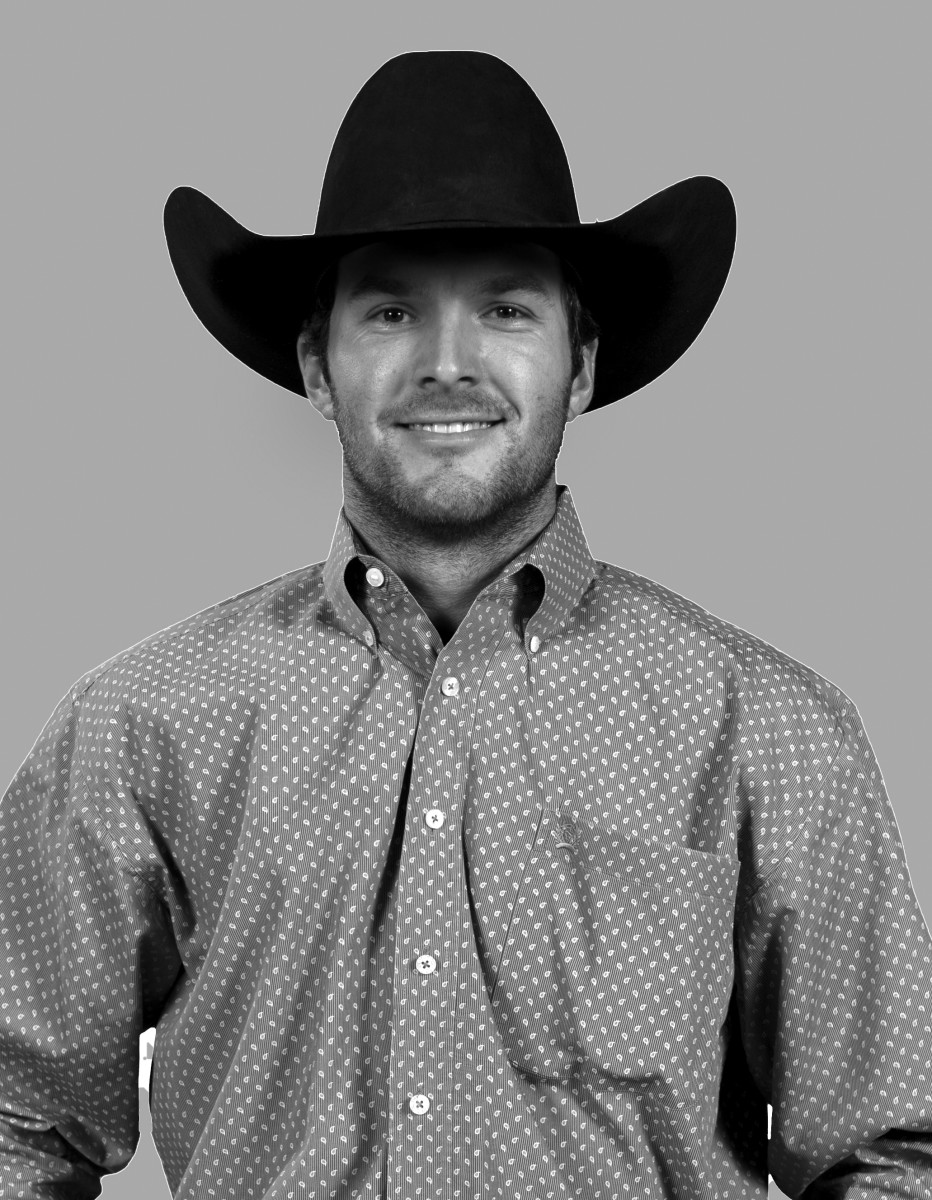
HEELER
Caleb Anderson
Hometown: Mocksville, NC
Partner: Jake Cooper
Pre-NFR Earnings: $72,389
Pre-NFR World Standings: 13
Years in PRCA: 10
“My first advice is not to take a deep breath and relax just because you made the NFR,” Sherwood said. “We didn’t make the NFR just to be there. You can’t take that killer attitude away just because you get to rope there. Now that you’ve made it, go win—full throttle. Go dominate by roping every steer as fast as you can. Plan on winning a lot there, and don’t be just happy to be there. Don’t relax too much on one hand, and don’t get too wide-eyed on the other.
“Have the Hoosiers’ attitude (that enabled a small-town high school basketball team to win the Indiana state championship back in 1954, because they worked hard and believed they were unstoppable). The steers at the Finals will have horns and will hop. Score and go rope. Don’t overthink it and think that you have to do more just because you’re in Vegas. That’s still just a steer with horns that hops. I see some people trying to change how they rope for the Finals. It’s still just a matter of scoring, riding position and roping. Just do it fast, because you can win $26,230.77 every night. And the average pays $67,269.23 a man.”
Trevor Brazile
The winningest cowboy of all time was a PRCA rookie in 1996. But it took even the GOAT a year or two to get warmed up once he moved up to the big leagues. Trevor qualified for his first National Finals Steer Roping in his sophomore season of 1997, then made his first NFR—where he heeled for J.P. Wickett—his junior PRCA year, in 1998. Brazile first made the NFR grade in the tie-down roping in his fourth professional season, in 1999.
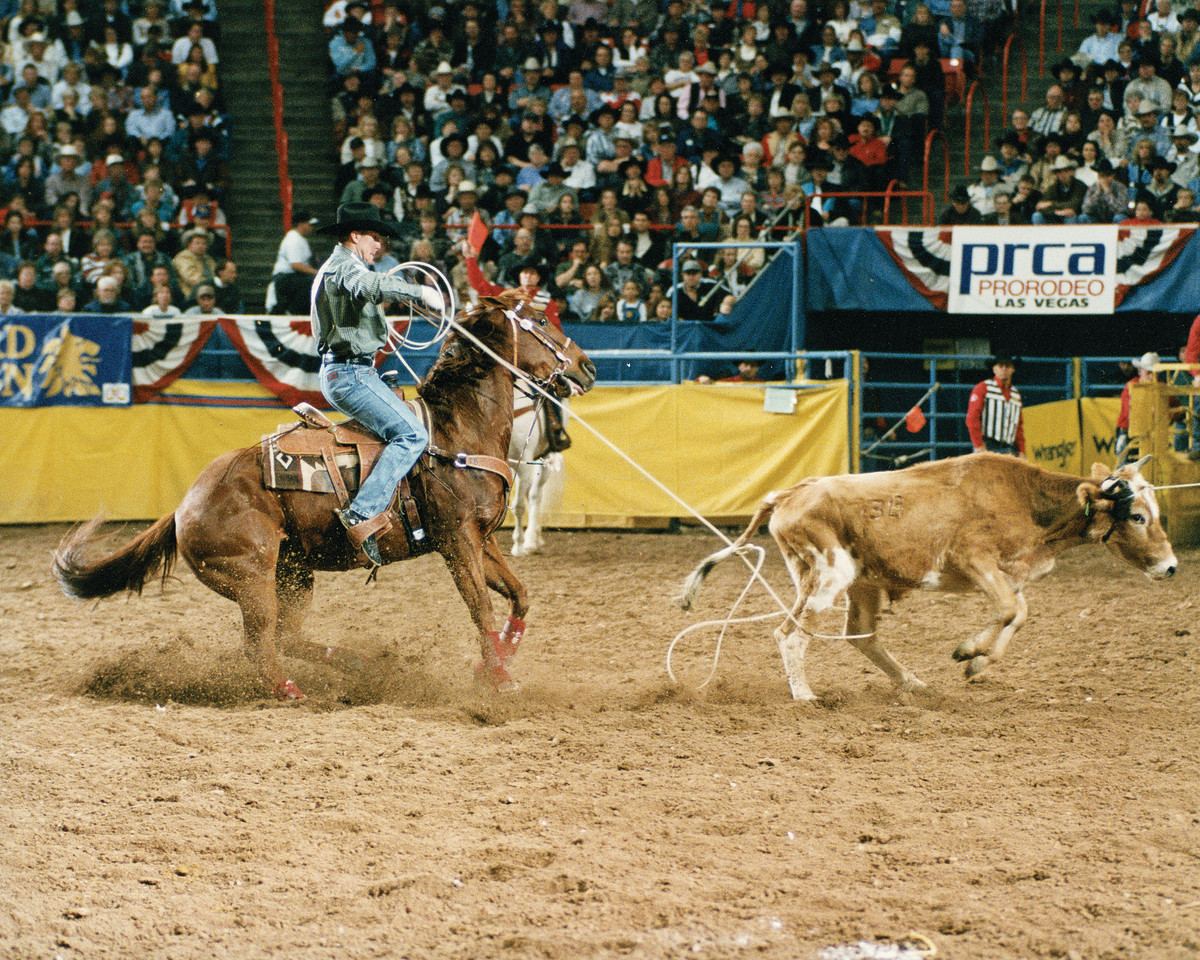
“I had to learn that you don’t have to go as fast at every rodeo as you see on TV in Vegas,” Trevor said. “It’s just not possible. Patience and consistency—consistency more than anything—are the big keys. I was being faster than the guys who were making it when I wasn’t, but they were winning more checks. I was all or nothing, and missing or breaking barriers trying to be a second faster than the setups and conditions dictated.”
Trevor agrees that the first Finals is the toughest one to tackle.
[LISTEN: The Short Score BONUS Episode with Trevor Brazile]
“That has a lot to do with the unknowns,” he said. “You learn that there are a lot of variables, and that just because it’s professional rodeo doesn’t mean calves don’t kick. You give your competitors so much respect, so you try to max everything out every time. You don’t have a chance every time you nod your head. You have to take advantage every time they let you. You can’t panic or get down on yourself when you aren’t winning.
“It’s about learning to stay the course more than anything. Rookies don’t realize that guys get to make mistakes during the year and still make the Finals. When they have those mistakes, the veterans know they made the Finals even with XYZ mistakes that might have cost them $30,000 over the course of the year. They realize it’s not the end of the world when something goes wrong, and they don’t let it affect their next rodeo.”
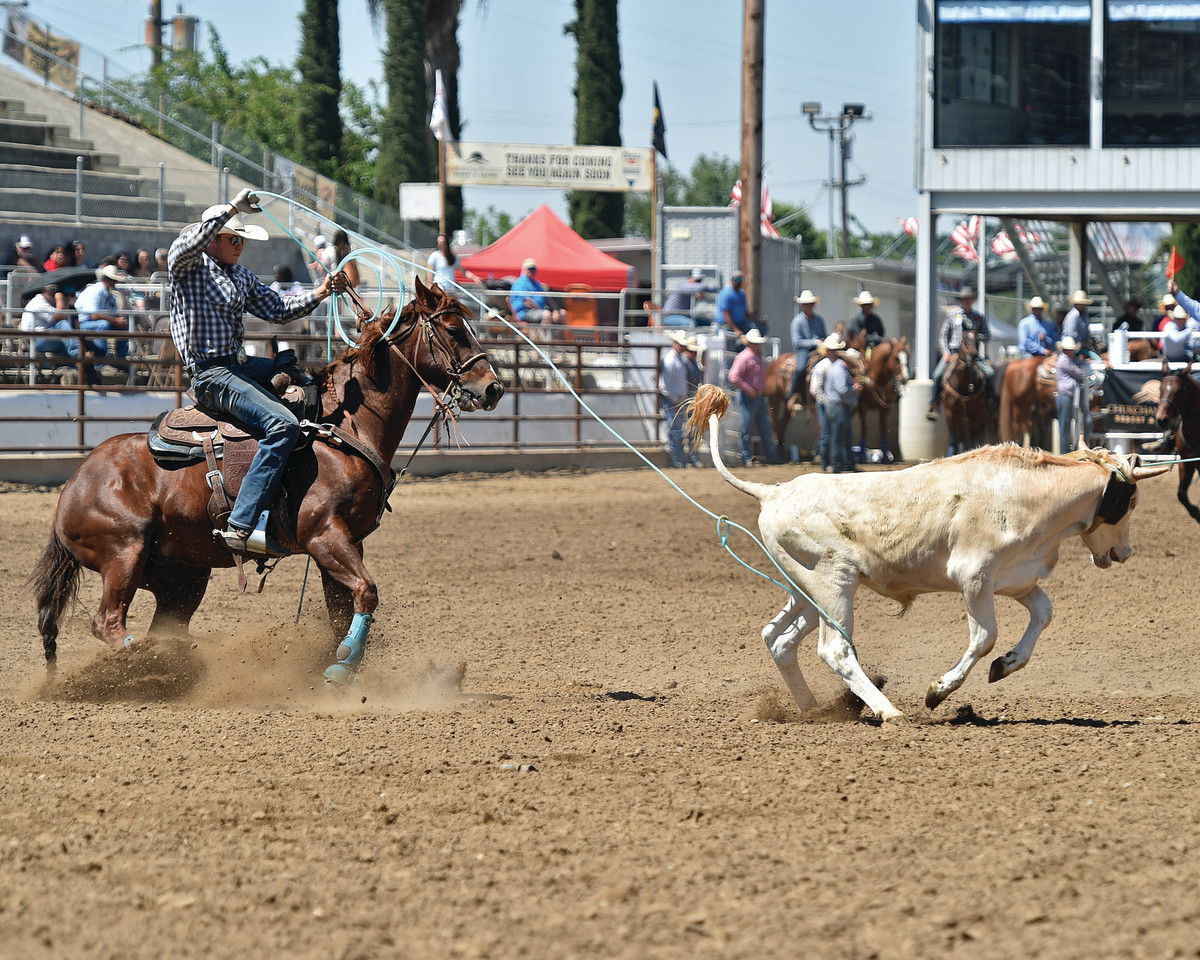
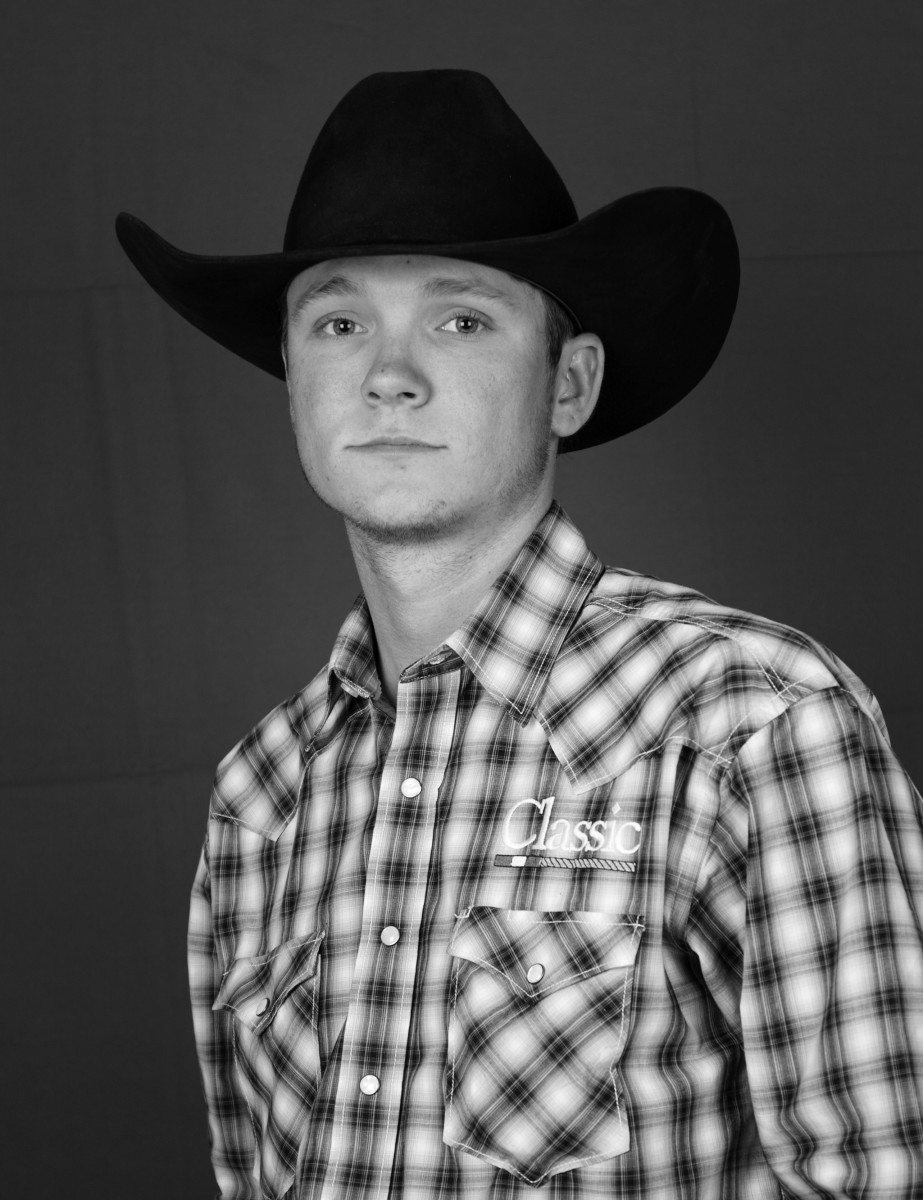
HEELER
Hunter Koch
Hometown: Vernon, Texas
Partner: Matt Sherwood
Pre-NFR Earnings: $84,307
Pre-NFR World Standings: 12
Years in PRCA: 2
[READ MORE: Behind The First-Time NFR Qualifier Hunter Koch]
What does the most Relentless gold buckle bandit in history—who just racked up his 53rd National Finals qualification, including last month’s NFSR, to further extend his own record—have to say to this year’s Finals freshmen?
“The Finals pays so good now,” Trevor said. “Set yourself up to get two good checks that last Saturday. If you do that, you’ll more than likely have a chance to win a world title. To do that, just make good runs. What I learned about making the Finals applies at the Finals. That rodeo is set up to be fast. There are good runs, and there are runs you know can’t be duplicated 10 times in a row. Trying to make those will take you out of getting that average check in the end, which you need. The world champ will have a good average check.
“Take that same run that wins at rodeos with all different setups all year long to the Thomas & Mack, and you will win. A snappy loop, good timing and a good finish is all you need to be successful anywhere, including the NFR. Don’t try to throw before the neck rope comes off. In the team roping, the control of the headers out there is critical. The difference between headers who stay in control and those who are out of control will be the difference between their heelers’ week being fun or hell.”
[READ MORE: Let’s Hear It For The NFR Switch Enders]




